The ocean has long taken the brunt of the impacts of human-made global warming, says UN Climate Change. As the planet’s greatest carbon sink, the ocean absorbs excess heat and energy released from rising greenhouse gas emissions trapped in the Earth’s system. Today, the ocean has absorbed about 90 percent of the heat generated by rising emissions.
As the excessive heat and energy warms the ocean, the change in temperature leads to unparalleled cascading effects, including ice-melting, sea-level rise, marine heatwaves, and ocean acidification.
These changes ultimately cause a lasting impact on marine biodiversity, and the lives and livelihoods of coastal communities and beyond - including around 680 million people living in low-lying coastal areas, almost 2 billion who live in half of the world’s megacities that are coastal, nearly half of the world’s population (3.3 billion) that depends on fish for protein, and almost 60 million people who work in fisheries and the aquaculture sector worldwide.
Here are some of the major consequences of the impacts of climate change on the ocean.
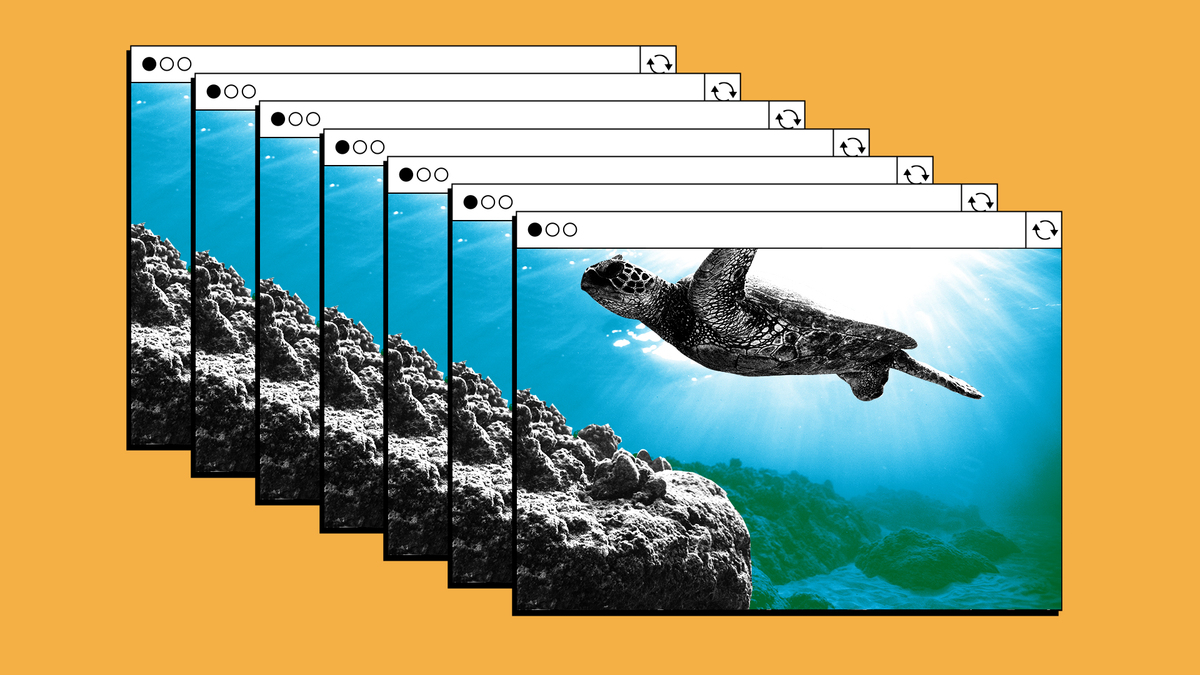
Sea-level rise
Sea-level rise has accelerated in recent decades due to increasing ice loss in the world’s polar regions. Latest data from the World Meteorological Organization shows that global mean sea-level reached a new record high in 2023, rising an average of 4.77 millimeter per year over the period 2014 to 2023.
Together with intensifying tropical cyclones, sea-level rise has exacerbated extreme events such as deadly storm surges and coastal hazards such as flooding, erosion and landslides, which are now projected to occur at least once a year in many locations. Such events occurred once per century historically.
Moreover, the Intergovernmental Panel on Climate Change (IPCC) says that several regions, such as the western Tropical Pacific, the South-west Pacific, the North Pacific, the South-west Indian Ocean and the South Atlantic, face substantially faster sea-level rise.
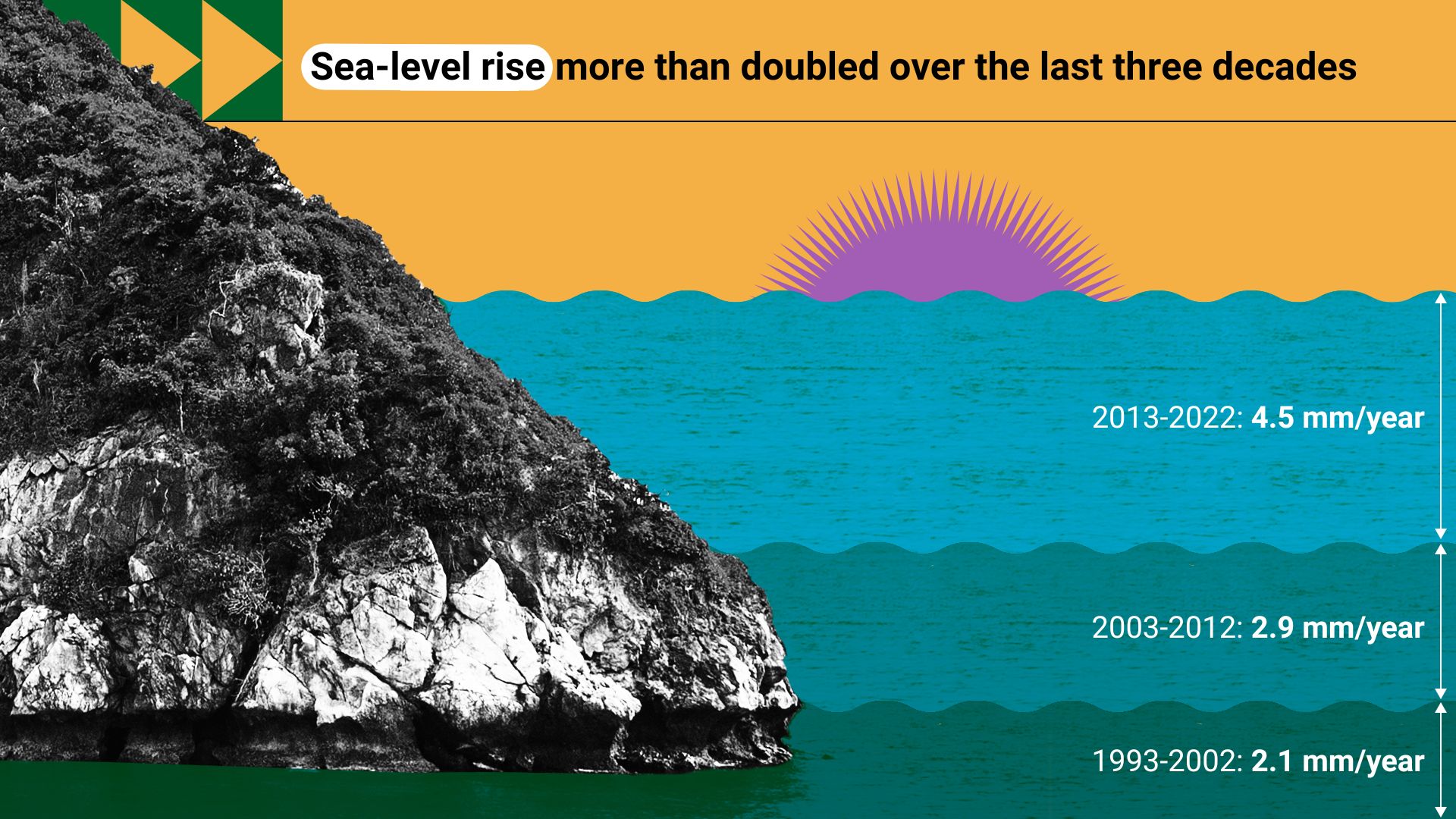
Marine heatwaves
Marine heatwaves have doubled in frequency, and have become longer-lasting, more intense and extensive. The IPCC says that human influence has been the main driver of the ocean heat increase observed since the 1970s.
The majority of heatwaves took place between 2006 and 2015, causing widespread coral bleaching and reef degradation. In 2021, nearly 60 percent of the world’s ocean surface experienced at least one spell of marine heatwaves. The UN Environment Programme says that every one of the world’s coral reefs could bleach by the end of the century if the water continues to warm.
Coral bleaching occurs as reefs lose their life-sustaining microscopic algae when under stress. The last global bleaching event started in 2014 and extended well into 2017 - spreading across the Pacific, Indian and Atlantic oceans.
Loss of marine biodiversity
Rising temperatures increase the risk of irreversible loss of marine and coastal ecosystems. Today, widespread changes have been observed, including damage to coral reefs and mangroves that support ocean life, and migration of species to higher latitudes and altitudes where the water could be cooler.
Latest estimates from the UN Educational, Scientific and Cultural Organization warn that more than half of the world’s marine species may stand on the brink of extinction by 2100. At a 1.1°C increase in temperature today, an estimated 60 percent of the world's marine ecosystems have already been degraded or are being used unsustainably. A warming of 1.5°C threatens to destroy 70 to 90 percent of coral reefs, and a 2°C increase means a nearly 100 percent loss - a point of no return.
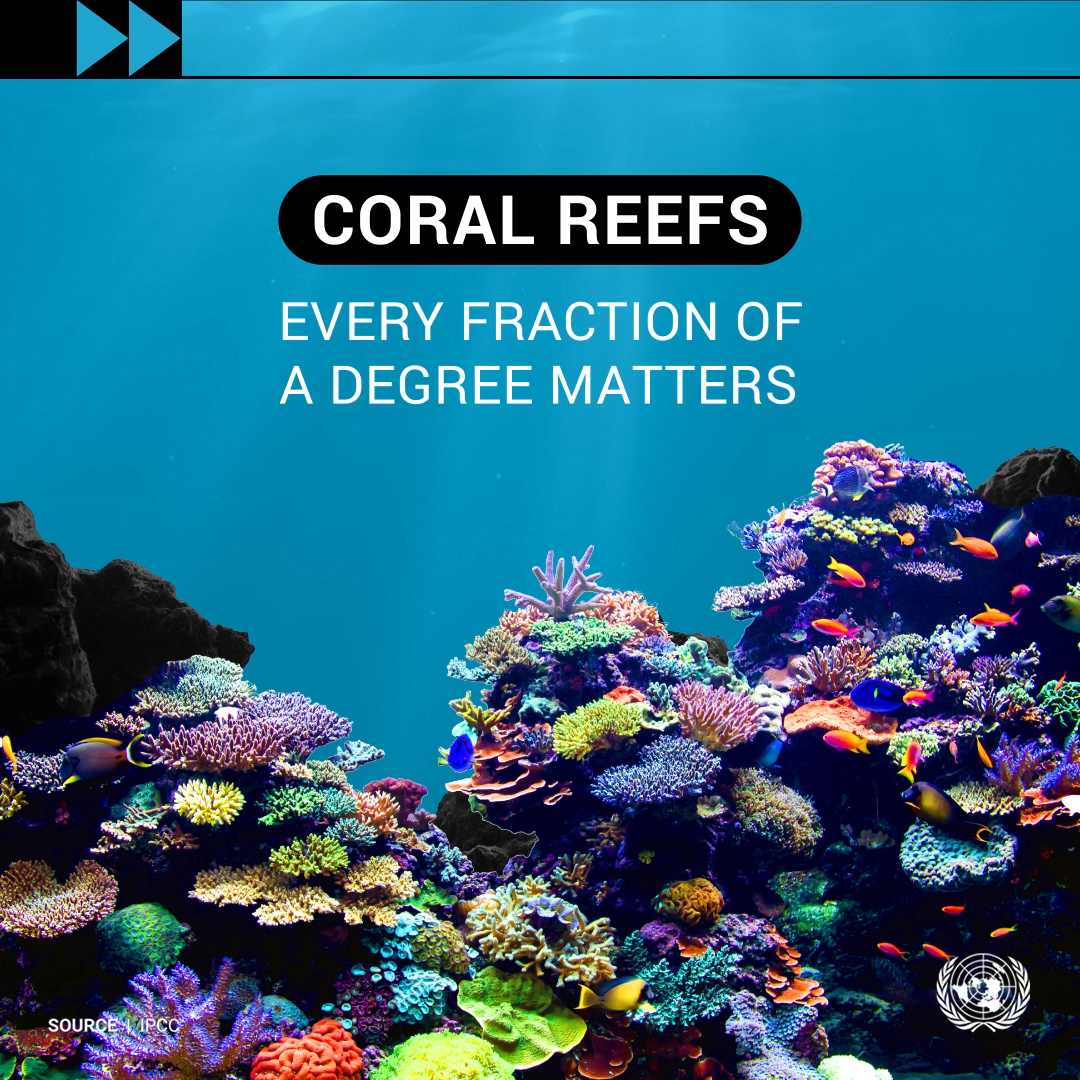
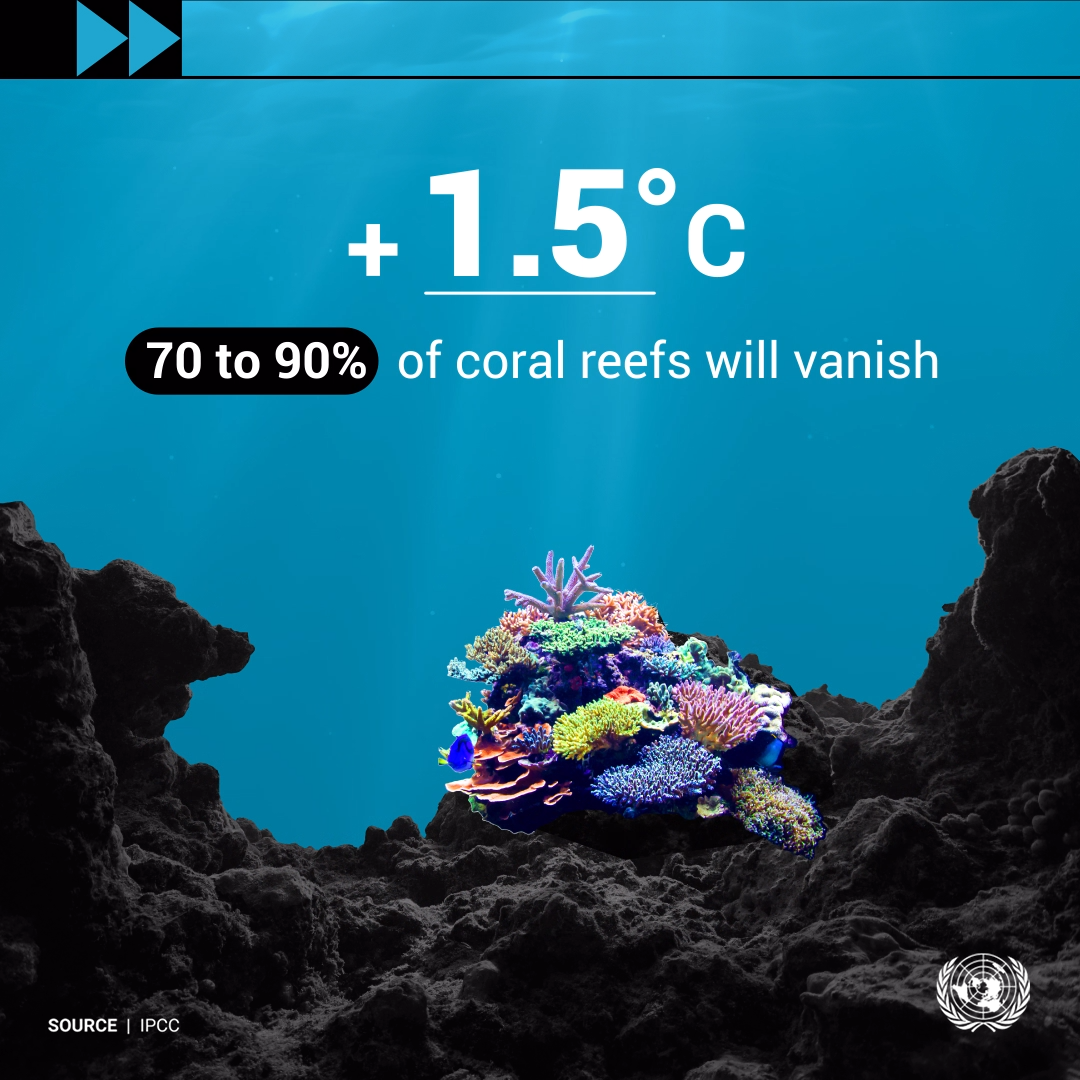
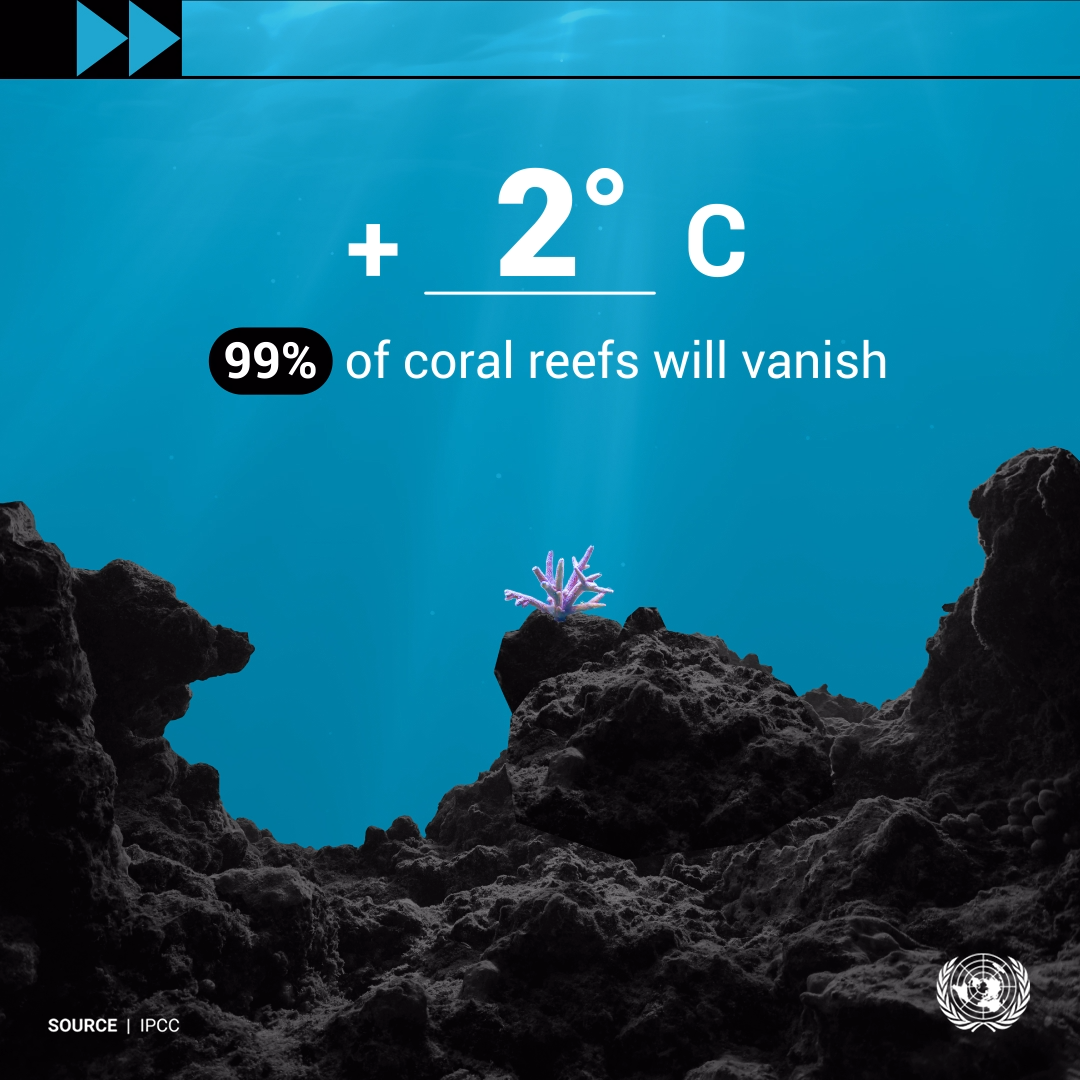
Read more
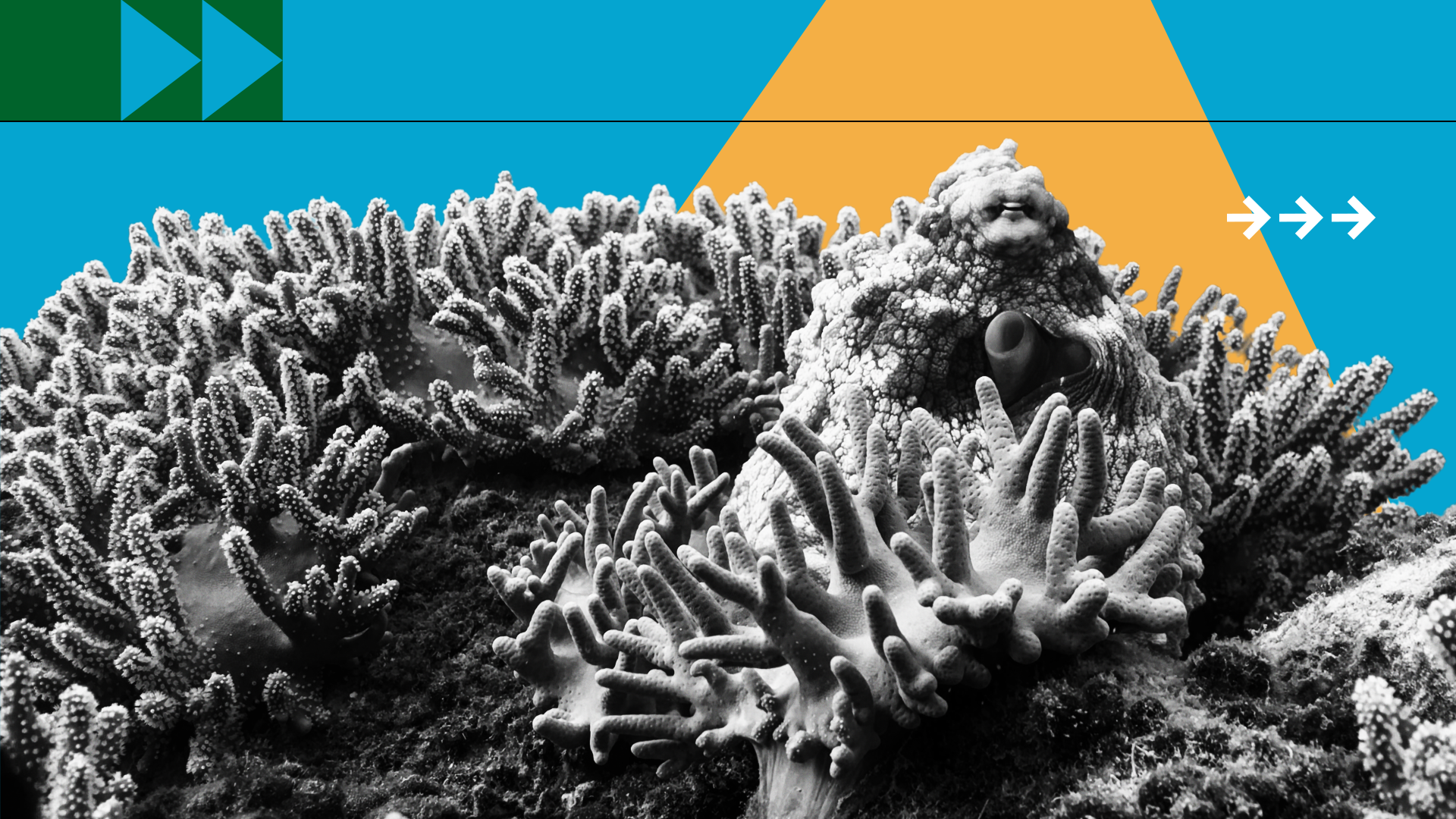
The ocean – the world’s greatest ally against climate change
The ocean is central to reducing global greenhouse gas emissions. Here are a few reasons we need to safeguard the ocean as our best ally for climate solutions.

Peter Thomson: Moving the needle on the sustainable blue economy
Ambassador Peter Thomson of Fiji, UN Special Envoy for the Ocean, mobilizes global action to conserve and sustainably use the ocean. Read the full interview.

Climate Adaptation
Climate change is here. There are many ways to adapt to what is happening and what will happen. For more tips, check out the ActNow campaign.
